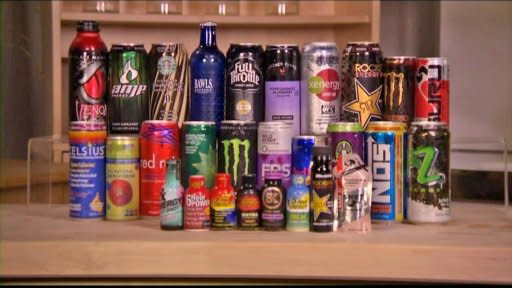 The Sideshow
The SideshowHow much caffeine would it take to kill a person?

After the recent lawsuit against the manufacturers of Monster energy drinks, Popular Science looked into the question of "how much caffeine would it take to kill you?"
In short, it would take at least six gallons of McDonald's coffee. In April, a coroner's report cited a New Zealand woman's consumption of Coca-Cola as being related to her death. But she reportedly had a number of other unhealthy habits, including smoking cigarettes and a poor diet.
But as Popular Science notes, individual reactions to caffeine intake vary from person to person and are heavily influenced by a number of other factors, including related health issues and the consumption of other substances, such as alcohol.
The Journal of Caffeine Research editor-in-chief Jack James tells PopSci that it takes "about" 10 grams of caffeine to achieve lethal levels. According to the Mayo Clinic, the average adult can safely consume 200 mg to 300 mg of caffeine per day, the equivalent of about 2 to 4 cups of coffee. However, consuming more than 500 mg per day can begin to trigger side effects, including insomnia, fast heartbeat and muscle tremors.
The U.S. National Institutes of Health says that deaths from toxic levels of caffeine are rare, but does cite two examples in recent years.
A wrongful-death lawsuit filed last week against the makers of Monster energy drinks claims that 14-year-old Anais Fournier drank two 24-ounce cans of Monster in the day before she unexpectedly died late in 2011. The coroner's report described "caffeine toxicity" as contributing to her death.
"Caffeine toxicity of the kind experienced by Ms. Fournier (if, indeed, that is what she experienced) is not well understood," James says. "There is speculation in the literature regarding the possibility of some individuals having a peculiar sensitivity to caffeine, but there is no clear definition or understanding of what such sensitivity might be."
In the case of Anais Fournier, a coroner's report says that the child died of "caffeine toxicity" after reportedly consuming the Monster energy drinks, which equaled about 240 mg of caffeine.
"I don't see another case of a child who died from acute exposure to the equivalent of four coffee cups of caffeine," applied nutritionist Mark F. McCarty told Popular Science. "That strikes me as extremely rare. I can't imagine that Monster was worried about this, because there's nothing in the literature to suggest this would happen."
Nonetheless, James points to both American and Australian statistics from 2010 showing that a number of individuals have been admitted to hospitals in recent years with caffeine-related conditions. Still, those numbers remain relatively small and rarely have resulted in fatal conditions.
"Nevertheless, of the many thousands of cases of caffeine exposure registered with the American Association of Poison Control Centers alone, some do indeed result in death," James said. "Until the advent of energy drinks, essentially all of the many reports of lethal and near-lethal cases of caffeine poisoning, involved atypical methods of ingestion. The advent of energy drinks appears to have changed that profile."


